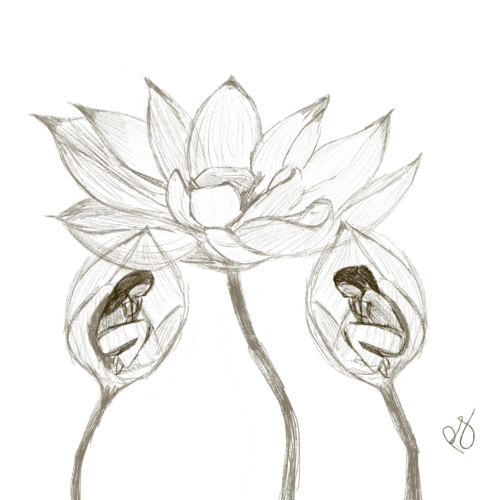Art Courtesy of Patricia Joseph
Though bringing new life into the world is often a joyful experience, new mothers also experience pain—both physically and mentally. Some mothers who have endured the emotional and physical struggles of pregnancy and childbirth also have to deal with postpartum depression. Unlike the “baby blues” that last for a few days or weeks after birth due to hormonal fluctuations, persistent symptoms that last longer than two weeks indicate postpartum depression (PPD)—a deep sense of sadness and anxiety that does not go away. “Postpartum depression is debilitating for both mothers and their children,” said Pamela Surkan, a professor at the Johns Hopkins Bloomberg School of Public Health. To address PPD, Surkan and her team conducted a phase III clinical trial to determine whether an anxiety-focused cognitive behavioral therapy that is delivered by a non-specialist can contribute to the prevention of PPD, as published in Nature Medicine.
The rationale behind this trial comes from two key pieces of information. First, as Surkan learned, anxiety during pregnancy can lead to PPD. Second, anxiety during pregnancy is especially prevalent in resource-poor countries. With that in mind, Surkan conducted the study in the Punjab province of Pakistan between April 2019 and January 2022. Out of the 755 pregnant women involved in the study, about half were randomly assigned to receive “Happy Mother–Healthy Baby” cognitive behavioral therapy while the other half received just routine pregnancy care. The Happy Mother–Healthy Baby program consisted of six therapy sessions in which new mothers learned to cope with anxious thoughts and replace them with positive ones, with five sessions conducted during early to mid-pregnancy and the last session occurring in the third trimester. A typical session might consist of exercises focused on reframing negative thoughts, such as thoughts regarding miscarriage, and replacing them with helpful thoughts and behaviors, such as ways to keep healthy during pregnancy. Six weeks after giving birth, all the women were assessed for anxiety and depression.
Pamela and her team found that only nine percent of women who were assigned the Happy Mother–Healthy Baby program showed moderate-to-severe anxiety while twenty-seven percent of the routine care group did. They also found an even greater improvement regarding symptoms of depression—a seventy percent reduction in depression among women in the program compared to the group who received routine care. Thus, there is evidence to suggest that giving mothers the tools to manage their anxiety can lead to better health outcomes for both mothers and their children.
Interestingly, one of the main challenges that Surkan faced during the study was the COVID-19 pandemic, which coincided with the data collection process. “Women were fearful about coming to the hospital, and there were lockdowns—including one national one—where we couldn’t collect any data at all for six months,” Surkan said. Despite this, the length of the study allowed researchers to collect quality data for their investigation. As COVID-19 responses in the medical system improved and more social interactions were allowed in Pakistan, recruitment of mothers became easier and allowed the study to continue.
The next step for researchers is to complete a biological study looking at the impact of the intervention program on immune dysregulation and hormone levels during pregnancy since psychological and social stressors can also lead to physiological changes. Beyond its impacts on the mother, immune dysregulation can contribute to neurological impairment in the newborn. “Postpartum depression not only harms mothers, but it is also associated with poorer physical growth and delayed cognitive development in their children,” Surkan said. With further implementation and continued study, these physiological implications could become easier to explore. “We weren’t able to recruit enough people in the intervention or control groups to look at differences between the groups for the biological study,” Surkan said. Surkan eventually hopes to implement this research on a larger scale, potentially in the US.
This study is particularly relevant to women today because it addresses a key source of anxiety for pregnant mothers during the transition between pregnancy and childbirth: their health. Pregnant mothers already experience major hormonal and physical changes that may be uncomfortable and require them to change their lifestyles. Preventing PPD makes this lifestyle transition easier and healthier for mothers and their children, ensuring that bringing life into the world also brings joy.

